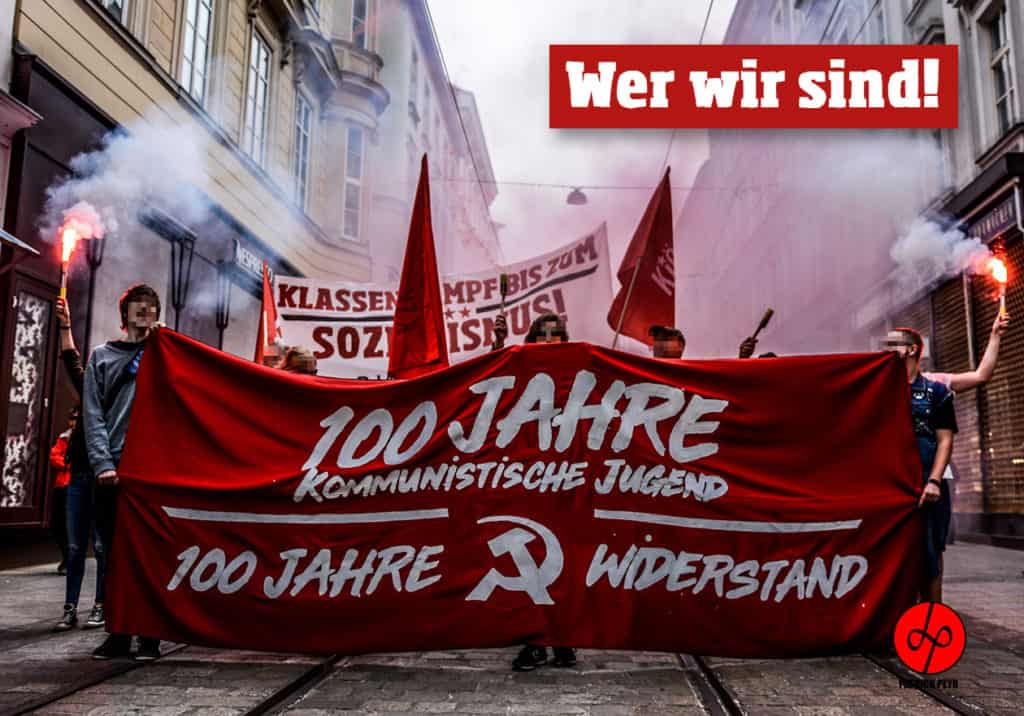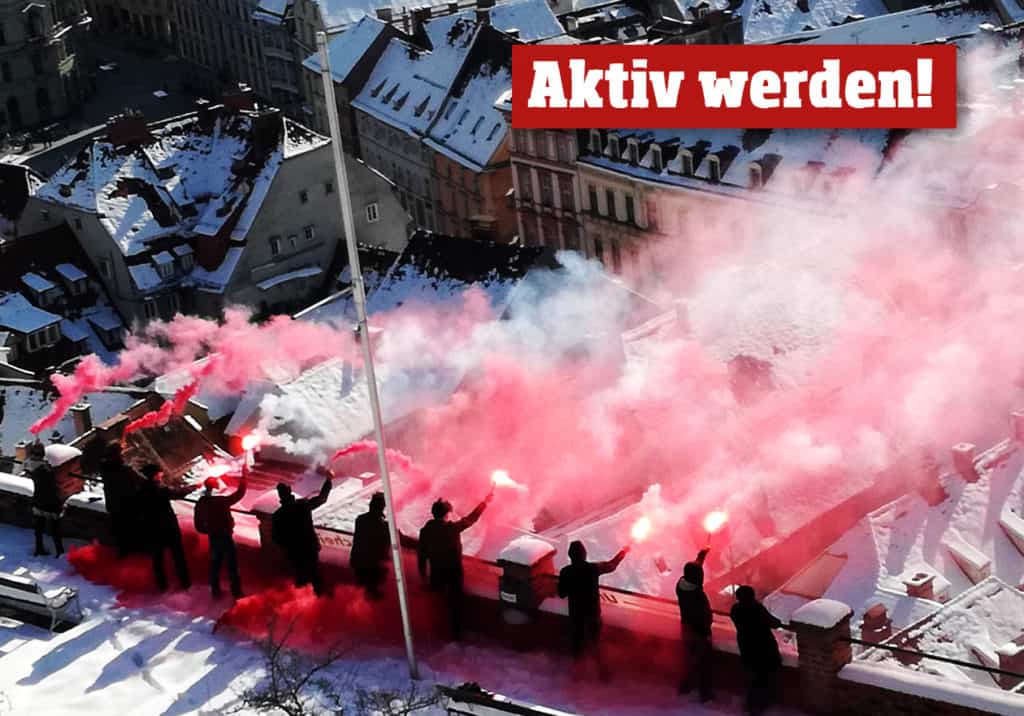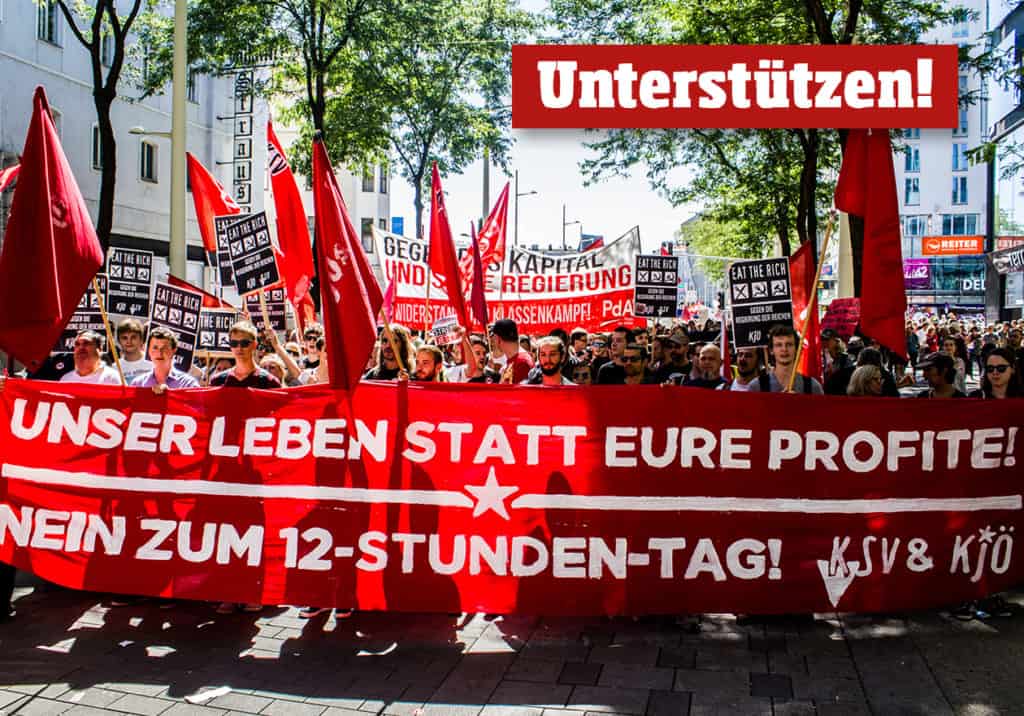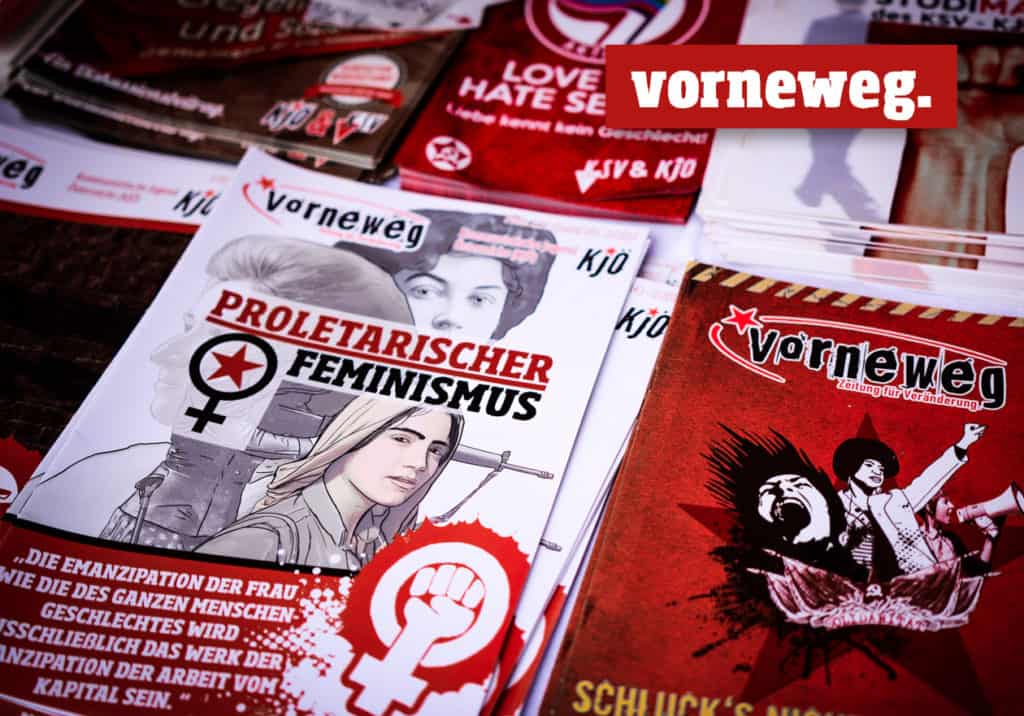Thema war der Widerstand gegen den Faschismus
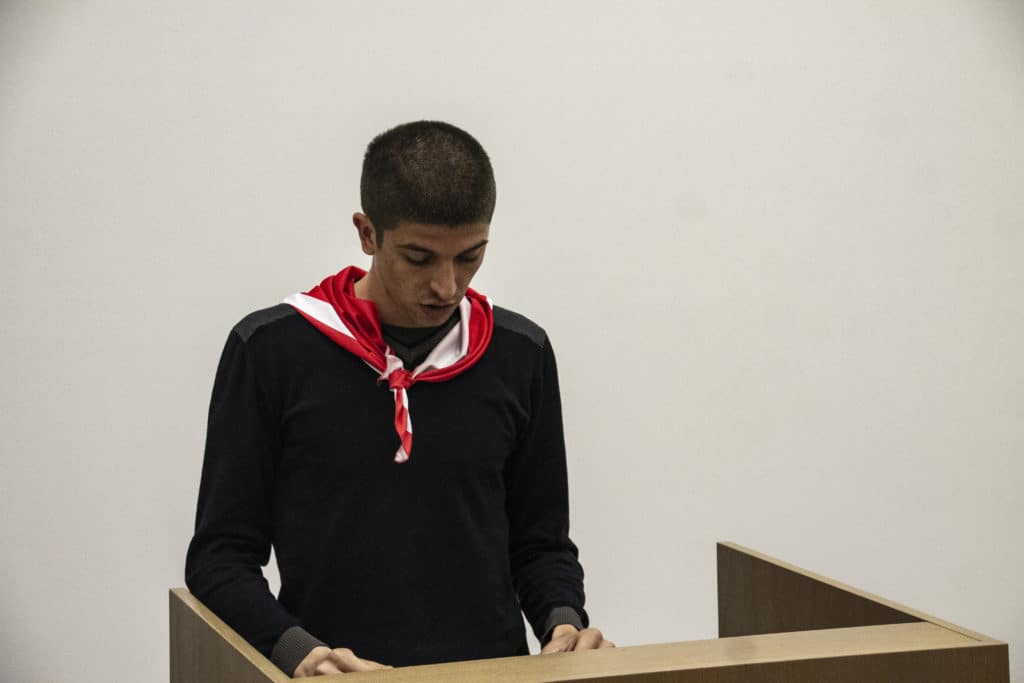
Dear comrades, I send you my warmest greetings from the FGC and we want to thank the comrades of the KJO for their invitation and for organizing this important seminar.
The Resistance was the greatest unitary way, the most powerful people’s struggle in the history of our country, which does not mean that all the forces, united by a common pact, were moved by the same ideals, even if they shared the fundamental and immediate goal that was to free the country from the Nazis. The character of a movement is not given only from the sum of the different social elements that participated in it, but aboveall from the forces that moved it, that directed it, that gave it impetus, which overcoming frictions and contrasts carried it forward. The Resistance does not belong to any party, all social classes and not all parties in equal measure. As in every great movement, so also in the Resistance, there were those who were at the head, those who performed the managerial function, those who gave the strongest contribution and those who participated more or less convinced, more or less dragged, and there were also those who did with hesitation.
Conservative forces, even if they had their representatives on the National Liberation Committee (CLN), would never have carried out the Resistance; therefore they cannot be considered protagonists of the great insurrectional movement. The main actor, the protagonist, the driving force was the working class. It is in the course of the Resistance that the working class, the workers begin to participate in a managerial function in the life of the State. The Resistance began when the factory workers, the rural workers, from the 1920s, defended the labor chambers , the circles, the ”Houses of the People” from the assault of the fascists, when under the guide of Antonio Gramsci they created their vanguard organization: the independent party that would have been able to unite them, to guide them in the fight against
fascism, for the freedom, for socialism. The nameless sacrifices borne by the working class and its vanguard during the twenty years of fascist dictatorship, the five thousand convictions of the Tribunal of the regime, the thousands of prisoners, deportees, exiles, those murdered in torture chambers bear witness to the capacity of struggle of the Italian people The resistance continues, in conditions and in forms different from those of then, but continues.
Remembering the Resistance does not mean referring to the past, but it means appealing to the present, to the fighters of yesterday and today. We must not only be the custodians of those who made the Resistance, but the makers of their ideals.
The days we live today in the daily struggle are difficult days. We communists, as avant-garde of proletarian youth, often have to deal with the wall of indifference and disinterest of our peers. For this reason the most important teaching that the partisan struggle can leave us today is that of acting in unfavorable conditions. In an extremely unfavorable and difficult condition without bases of operation and almost without weapons, without guns, without tanks, without warehouses, without means to start feeding this war, without the direct support of any government, without money, hunted down from the enemy the workers engaged in the most courageous of the struggles against aggressive troops, strongly superior in number and powerfully armed. The partisans, especially at the beginning of the war, did not possess military formations equipped in accordance with the requirements of modern warfare. The partisan army formed, armed itself and developed during the struggle. Not having stable bases, they lived constantly moving and tying strong ties with the population. For this reason the partisan struggle had to be linked to the interests of the broad masses of workers, to the national aspirations of freedom and independence of all the people.
A struggle that is strengthened thanks to the contribution made by the youth in the ranks of the „Youth Front“. Brigade formed in 1944 by Eugenio Curiel and composed of very young people with less than 20 twenty years. It is no coincidence that our organization wanted to regain this name, wspecially at a time when historical revisionism rewrites the facts of what happened and wants to empty the history of the Resistance of every revolutionary and combative character. Young people knew how to choose the right path, even if it was the most difficult, to become active freedom fighters. Despite twenty years of dictatorship, fascist schools, lack of freedom of speech and organization, the young people were able to overcome every obstacle, and it was they who constituted the bulk of the partisan formations. More than fifty percent of the partisans were less than twenty-five years old, twenty-five percent were young people between the ages of twenty-five and thirty, these are important figures that make up the great mass of partisans formed by young people raised and educated under fascism.
Without this important contribution, the partisan struggle would hardly have achieved important achievements. Just as the Resistance could not have continued without the direct and indirect support and assistance of the workers, without the hundreds of unrest, strikes, mass movements in the cities and in the countryside that had communists at their head and socialists.
The aspect that surely fascinates the Resistance most is the fact that the struggle for bread was at the same time a national struggle for the expulsion of the Germans. The most conscious part of the proletariat can never at any time, even when the armed struggle is organized, lose interest in the contingent problems, the vital demands that affect the workers. All the strikes that occurred between September 8, 1943 (when the armistice was signed with the Anglo-Americans) and April 25 (the official date of the liberation of the country) and the economic claims were linked to the more advanced objectives; struggle against Nazi terror, against deportations, against shooting. This was the winning strategy that transformed the partisan struggle into a mass, mass struggle.
A week from 25 April(Liberation Day in Italy) and a few days away from the International Labor Day we remember the fundamental teaching of the Resistance and its class character. In our daily sacrifice we continue the struggle for freedom, for a new, socialist society, at the service of all workers. An idea of society that the same people aspired to that freed the country from Nazi-fascism.
„Strengthened by our history to the point of victory“
LIVES THE PROLETARY INTERNATIONALISM

